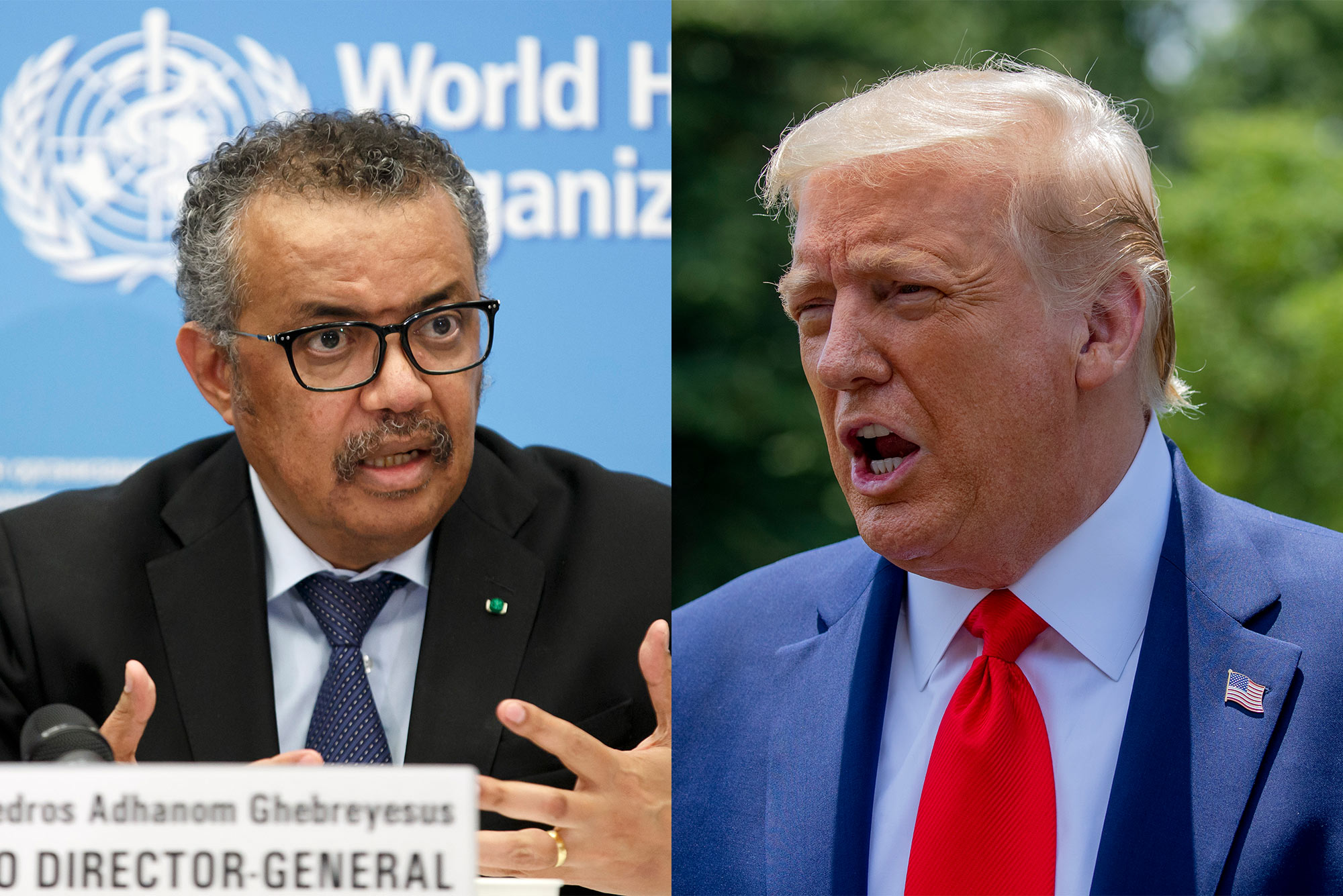Introduction
In a controversial move that has sparked global debate, U.S. President Donald Trump ordered the withdrawal of the United States from the World Health Organization (WHO). The decision, initially announced during his presidency, was based on several grievances, including concerns over the WHO’s handling of the COVID-19 pandemic and allegations of bias toward China. Trump claimed that the WHO had not only mismanaged the crisis but also acted in ways that compromised global trust in the organization. This article explores the rationale behind Trump’s decision, its potential implications, and reactions from various stakeholders while assessing the broader impact on global health governance.
Background:
The U.S.-WHO Relationship
The United States has historically been a major contributor to the WHO, both financially and through policy influence. As one of the founding members, the U.S. has played a significant role in global health initiatives, including vaccine distribution, disease eradication efforts, and emergency response coordination. The WHO’s initiatives in combating diseases such as HIV/AIDS, malaria, and tuberculosis have significantly benefited from U.S. funding and leadership. However, tensions between the U.S. and the WHO escalated during the COVID-19 pandemic, with the Trump administration accusing the organization of mismanagement and favoritism toward China. Some experts argue that political disagreements were brewing long before the pandemic, with previous administrations expressing concerns over the WHO’s bureaucratic inefficiencies.
The WHO relies heavily on contributions from member states, and the U.S. has traditionally been its largest donor. This financial relationship gave the U.S. considerable influence over global health initiatives, making its withdrawal a significant blow to the organization.
Reasons for the Withdrawal
Trump’s decision to withdraw from the WHO was driven by several key concerns, which he and his administration outlined in multiple public addresses and policy statements:
1.COVID-19 Response Criticism:
The Trump administration argued that the WHO failed to adequately respond to the initial outbreak of COVID-19 in Wuhan, China. According to Trump, the WHO’s slow response and reliance on Chinese data contributed to the virus’s rapid global spread. Critics pointed out that the WHO did not challenge China’s official reports, which may have led to an underestimation of the threat posed by the virus.
2.Alleged Chinese Influence:
Trump and his administration accused the WHO of being too influenced by China, claiming that the organization had accepted and propagated misinformation from Chinese authorities in the early stages of the pandemic. Many in the U.S. government believed that the WHO’s reluctance to confront China compromised its ability to serve as an impartial global health leader.
3.Financial Contributions
The U.S. was the largest single contributor to the WHO, providing nearly $400 million annually, accounting for approximately 15% of the WHO’s total budget. Trump argued that the financial burden was unfair and that the funds could be better utilized for domestic health initiatives, such as improving the country’s public health infrastructure and pandemic preparedness.
4.Calls for Reform
The Trump administration demanded structural reforms within the WHO to ensure greater transparency, accountability, and independence from political influences. The lack of immediate reforms and what Trump viewed as the organization’s failure to acknowledge its shortcomings prompted the decision to withdraw.
Implications of the Withdrawal
The U.S. departure from the WHO has several far-reaching consequences, both domestically and internationally, affecting global health initiatives and diplomatic relations:
1.Impact on Global Health Programs:
The WHO coordinates numerous health initiatives, including vaccination campaigns, disease control efforts, and emergency responses. The U.S. withdrawal could disrupt these programs due to reduced funding and leadership. This funding shortfall could hinder efforts to combat infectious diseases and support vulnerable populations in developing countries.
2.Loss of Influence:
By stepping away from the WHO, the U.S. risks losing its seat at the table in shaping global health policies, potentially ceding influence to other countries such as China and the European Union. China, in particular, has been increasing its presence in international organizations, and the U.S. withdrawal could provide an opportunity for China to expand its influence further.
3.Domestic Health Challenges:
Critics argue that the withdrawal could harm the U.S. public health system, as the WHO provides crucial data, resources, and support for tackling global health threats. The organization’s research and recommendations play a vital role in shaping national healthcare policies.
4.Diplomatic Strain:
The decision has strained relationships with key allies who view WHO membership as essential for global health cooperation. Many countries, including the U.K. and Germany, expressed disappointment over the move, highlighting the importance of a united front in global health emergencies.
Reactions from Stakeholders
The withdrawal announcement was met with mixed reactions from different quarters, reflecting the polarized nature of the decision:
- International Community:
- Many world leaders and health organizations condemned the decision, emphasizing the importance of multilateral cooperation in combating pandemics. Some expressed concern that the withdrawal could undermine the global response to future health crises.
- U.S. Political Figures:
- Domestic reactions were divided along party lines. While some Republicans supported the decision as a step toward self-reliance, many Democrats criticized it as a dangerous move that undermines global health security, potentially leaving the U.S. more vulnerable to future pandemics.
- Public Health Experts:
- Leading epidemiologists and medical professionals voiced concerns over the potential setbacks in disease control and research collaborations that could arise from the U.S. exit. Some argued that isolating the U.S. from international health efforts could hinder the fight against cross-border health threats.
Rejoining Under the Biden Administration
Following Trump’s departure from office, President Joe Biden reversed the withdrawal decision on his first day in office in January 2021. Biden emphasized the importance of U.S. participation in global health efforts and reaffirmed a commitment to WHO reforms through collaboration rather than isolation. His administration allocated additional funding and resources to WHO programs and reestablished partnerships that had been affected by the withdrawal.
Conclusion
Trump’s decision to order the U.S. withdrawal from the WHO highlighted key issues in global health governance, but it also raised concerns about the potential fallout of disengagement from international institutions. While the Biden administration swiftly rejoined the WHO, the episode serves as a reminder of the complexities involved in balancing national interests with global cooperation. The future of the U.S.-WHO relationship will likely continue to evolve, influenced by geopolitical factors and public health challenges.
(Click notification ![]() for more updates)
for more updates)
Artical was written by V.Harishram
''Stay true, bring facts to you''

